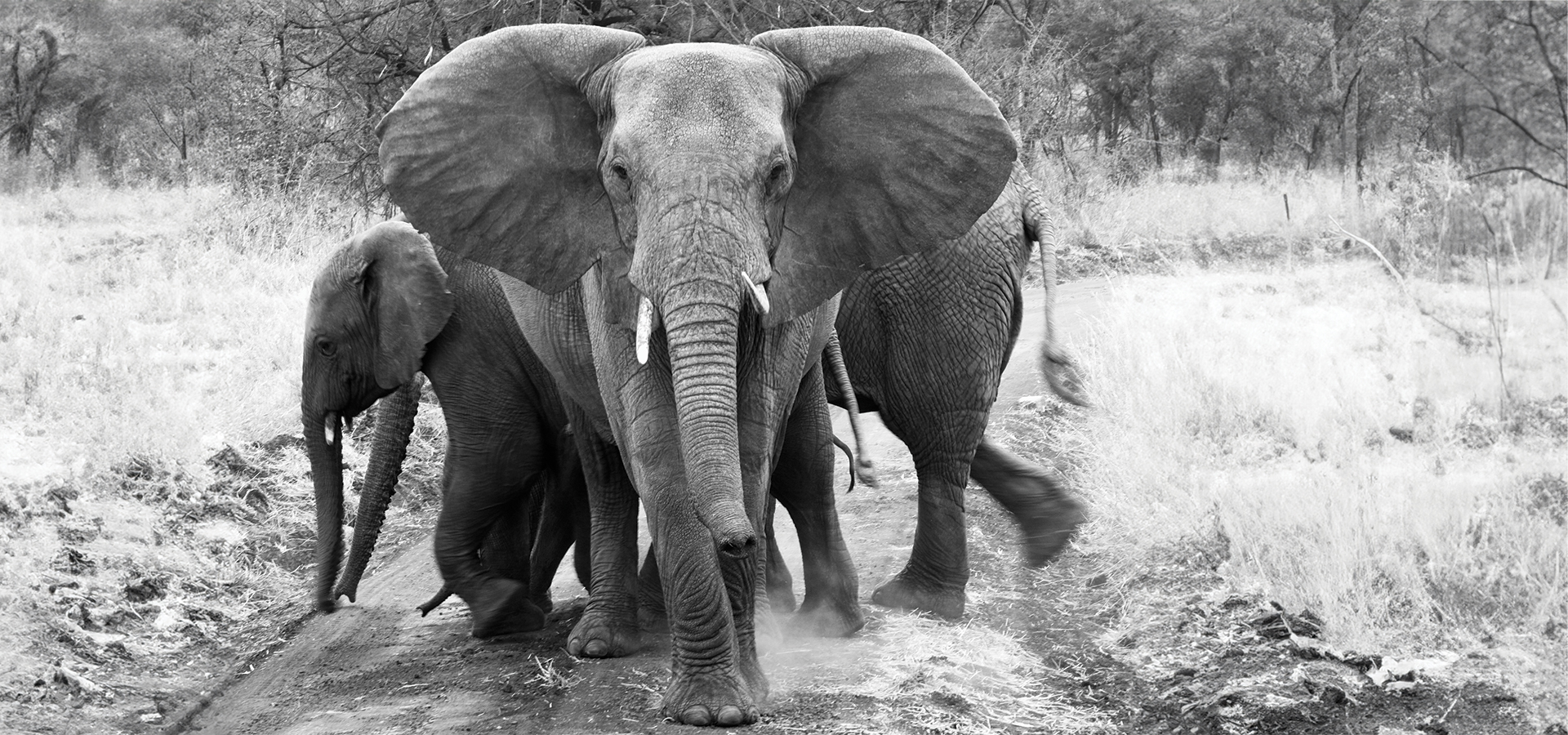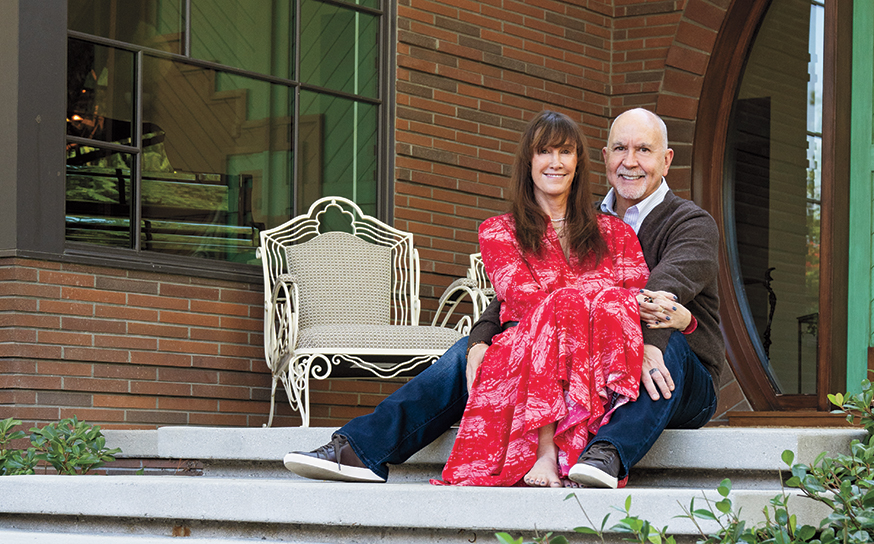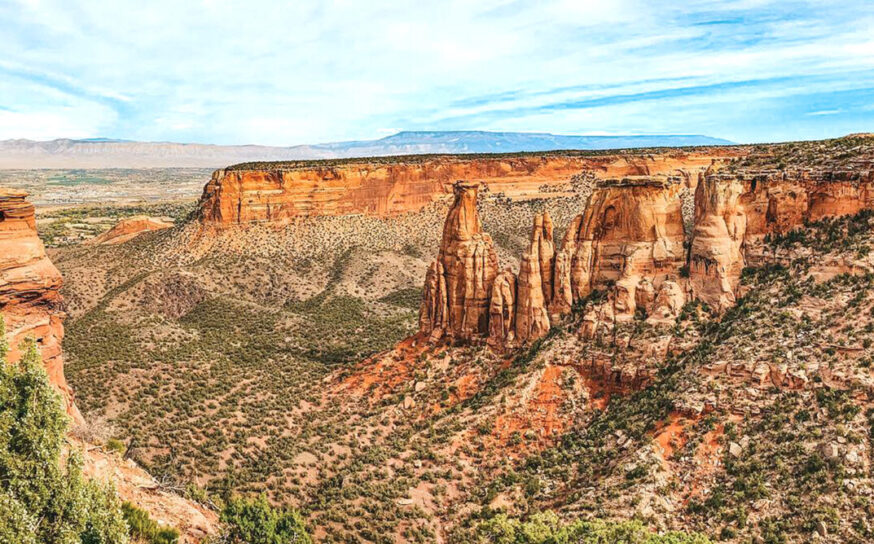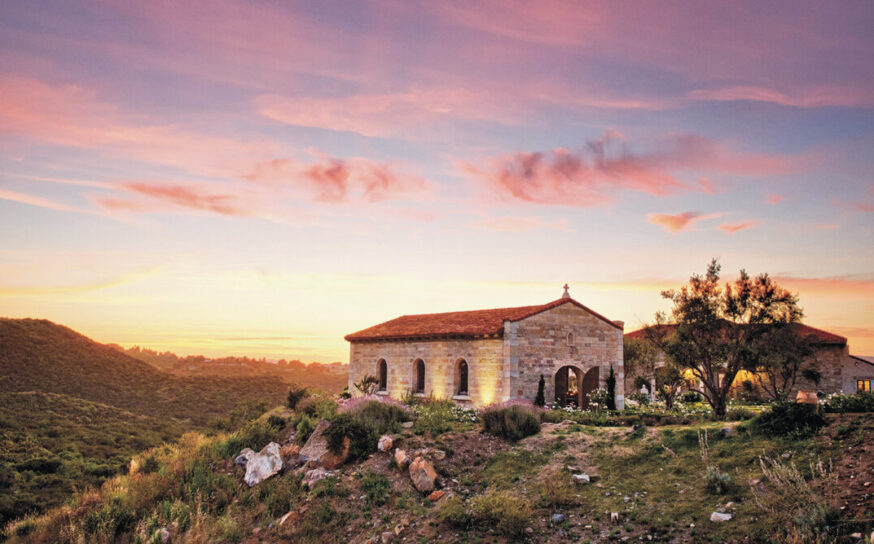By all accounts, Alan Feldstein was a successful lawyer. Living in Studio City, he worked in advertising and marketing law with a specialty in direct-response advertising. When products came under scrutiny by the FDA, there was money to be made on both sides of the legal equation—and Alan made his fair share. He also accumulated a ridiculous number of frequent-flyer miles traveling back and forth between Los Angeles and Washington, D.C.
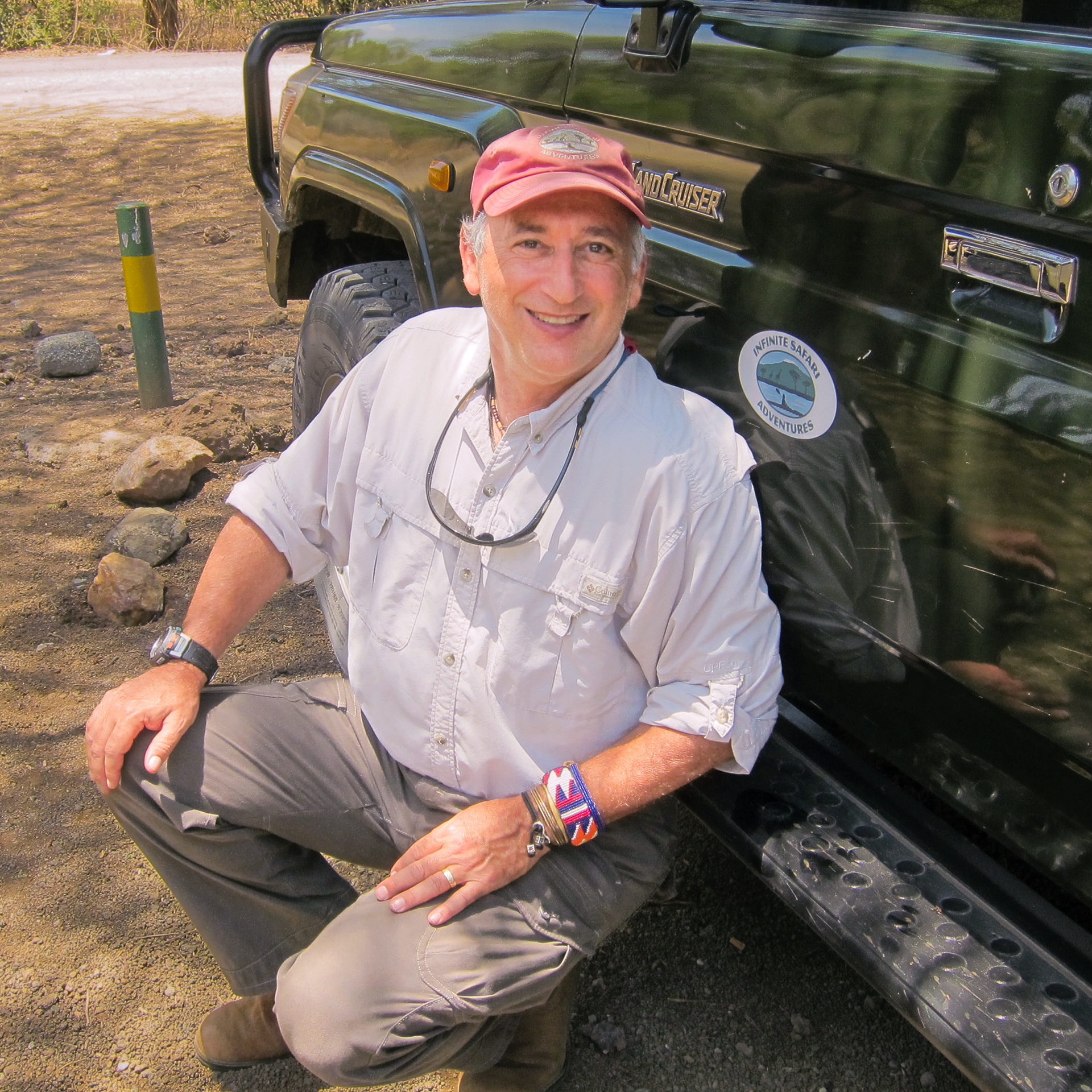
Alan on the job
“After a big case ended in 2000, I told my wife, Diane (Haithman), that we could go anywhere in the world with the frequent-flyer miles.” Diane had always wanted to go on safari, and so they went to Tanzania. “Diane said that the giraffes had me at jambo (Swahili for ‘hello’). It’s hard to dispute that.”
In 2005, Alan decided to climb Mount Kilimanjaro for his 50th birthday. After he successfully summited, he and Diane headed to the Mahale Mountains to track chimpanzees. “Magical,” Alan recalls.
The pivotal moment, though, came in 2008, when Alan, an experienced kayaker, was out on the Indian Ocean near Pangani, Tanzania, with his son and daughter.
“I was in a kayak that I helped design, and I was reflecting on the safari I’d just completed with my children. My advice to them was to always devote their lives to what they’re passionate about. Later, sitting on the beach alone, it began to dawn on me that I needed to take my own advice.”
Alan decided to give up his legal practice and start a boutique safari company.
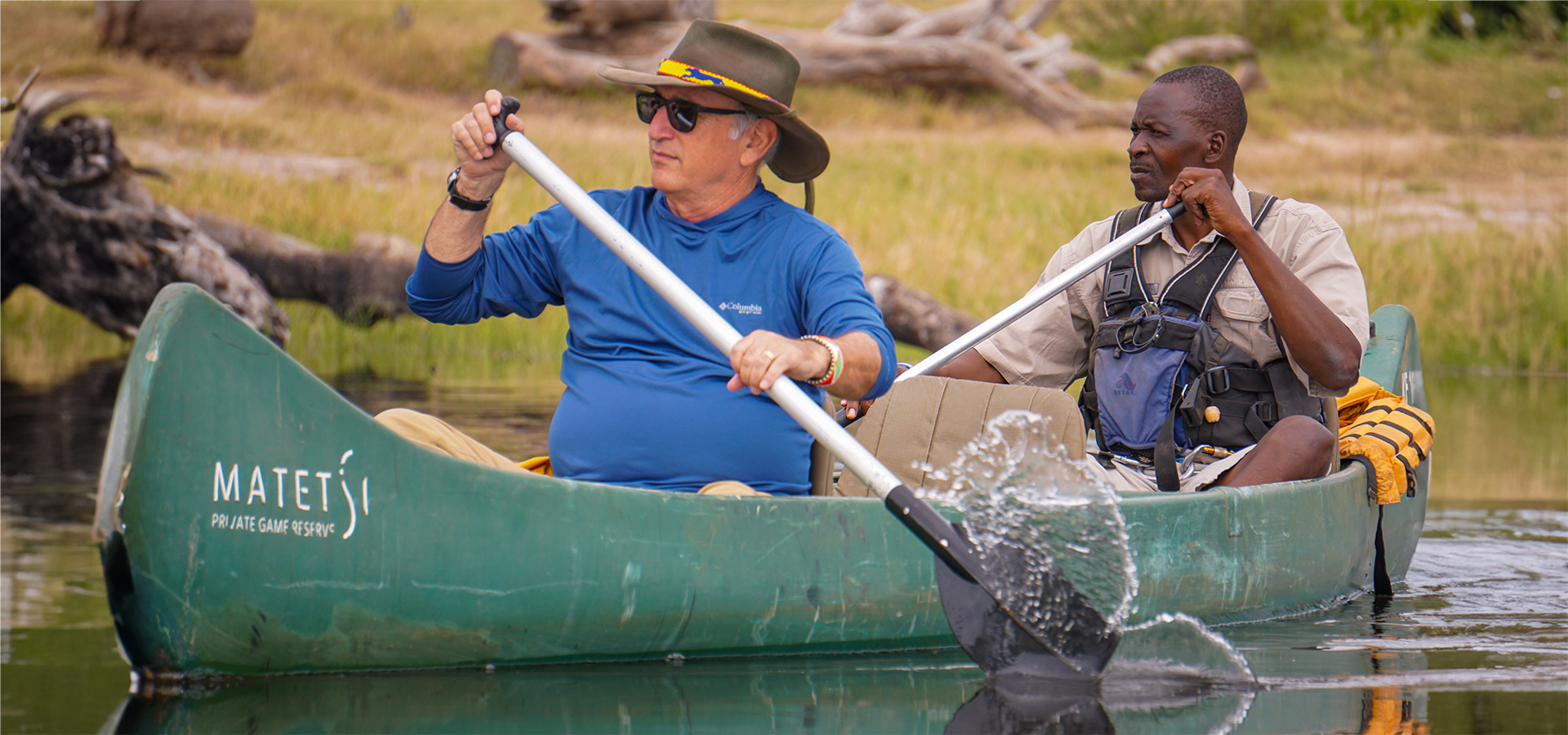
Above: Canoeing on the Zambezi River in Zimbabwe
•••
OUT OF AMERICA
Alan led his first expedition with his new company, Infinite Safari Adventures, in 2010. “As a lawyer, I ran through every possible scenario I could think of to make sure I was protected and so were all of my customers.”
In the beginning, Alan led all the safaris himself. “I began with safaris in Tanzania. One of the unique things about my company is that I do not take anyone anywhere or have them do anything that I or my staff have not done ourselves.”
“I was in a kayak that I helped design, and I was reflecting on the safari I’d just completed with my children. My advice to them was to always devote their lives to what they’re passionate about. Later, sitting on the beach alone, it began to dawn on me that I needed to take my own advice.”
Infinite Safari Adventures now offers experiences in 12 Eastern and Southern Africa nations enabling Alan to share even more unique experiences with his clients. He says he is charmed by the people.
“People in Africa want to help you without expecting anything in return.” Alan says, adding that neither he nor any of his safari clients have ever had any problems with crime in Africa.
He does acknowledge that there are often minor glitches in the system. Things can happen, but Alan always makes himself available to clients during their safari. “Everything in Africa sorts itself out.”
One day, Alan was boarding a train from Nairobi to Emali, Kenya, and he had a Leatherman knife/multitool with him. Train officials took it from him before he boarded, but gave it back to him as soon as he arrived at his destination. “It’s hard to imagine that happening in America.”
This African sensibility—both thoughtful and kind—sparked Alan’s idea to start a foundation.
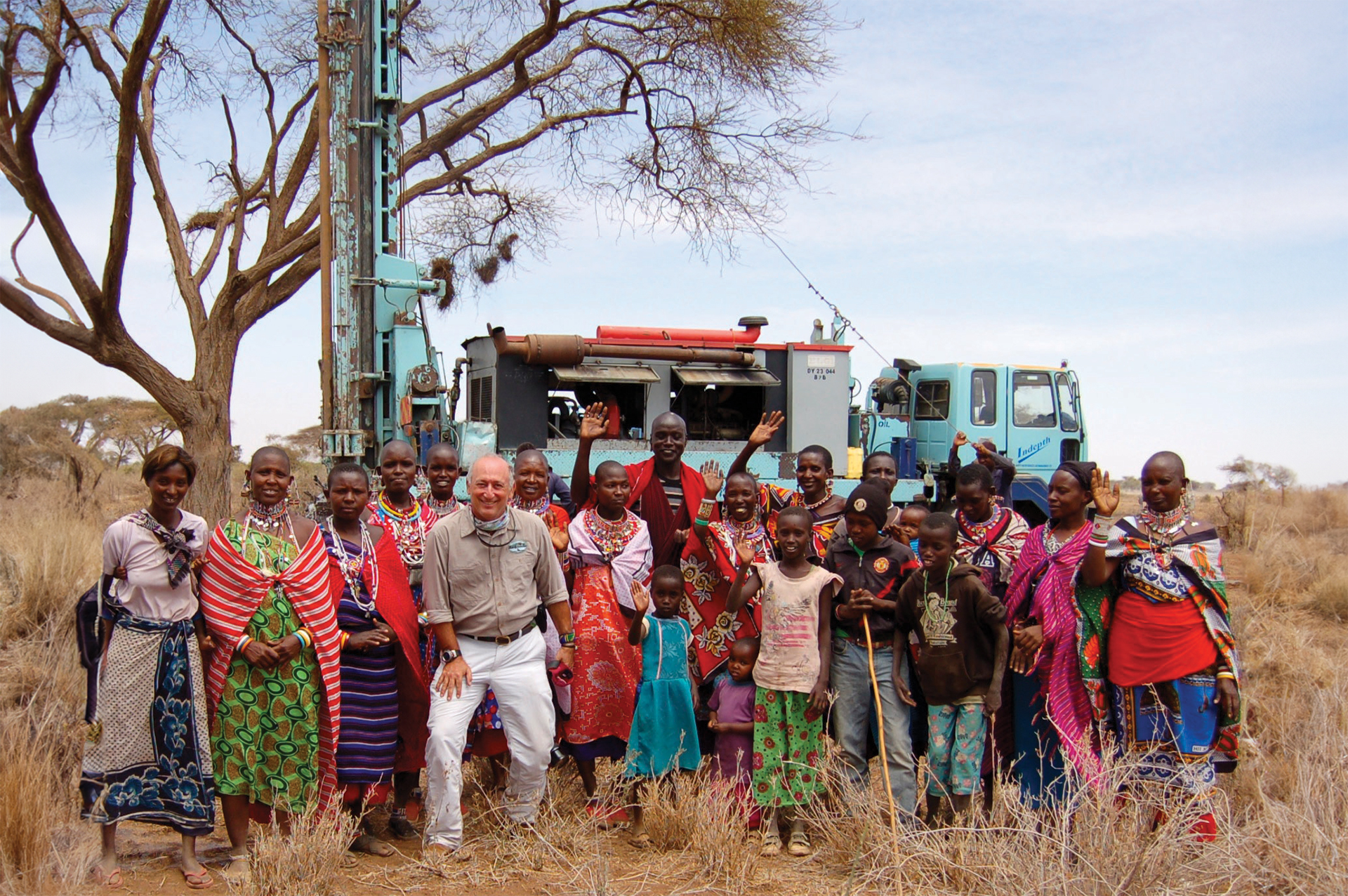
Celebrating the digging of a water well for the community in Amboseli, Kenya
A STRONG FOUNDATION
Alan says that this charity, Infinite Safari Foundation, cofounded by Diane, is his way of paying back the people of Africa, who have given so much to him. When clients book a safari with Infinite Safari Adventures, a portion of their cost goes to the foundation in their name as a tax-deductible donation. “Our efforts include education projects, building water wells, providing food for local Maasai communities, and supporting wildlife conservation,” Alan says.
In addition, Infinite Safari Foundation has put a Kenyan Maasai warrior named Patrick through college. Patrick, Alan shares, now runs an anti-poaching operation that features an all-female team of rangers known as the Young Lionesses.
The former lawyer says that his protégé is struck by the difference between how Americans and Africans view the world. “Patrick has a different perspective from most Americans. In the Amboseli National Park area where he lives, he often encounters Americans who complain about the lack of resources. They want to bring first-world resources to the area,” Alan says.
“But why do I need to do that?” Patrick asks, via Alan. “Americans have so much stuff, so they worry about stuff. I have no stuff. I have nothing to worry about. In my village we look out for each other. We share. We sit around and talk to one another. And we have a great view of Mt. Kilimanjaro.”
One of the purposes of the Infinite Safari Foundation, Alan explains, is to assist communities without trying to change them to fit an American notion of “improvement.”
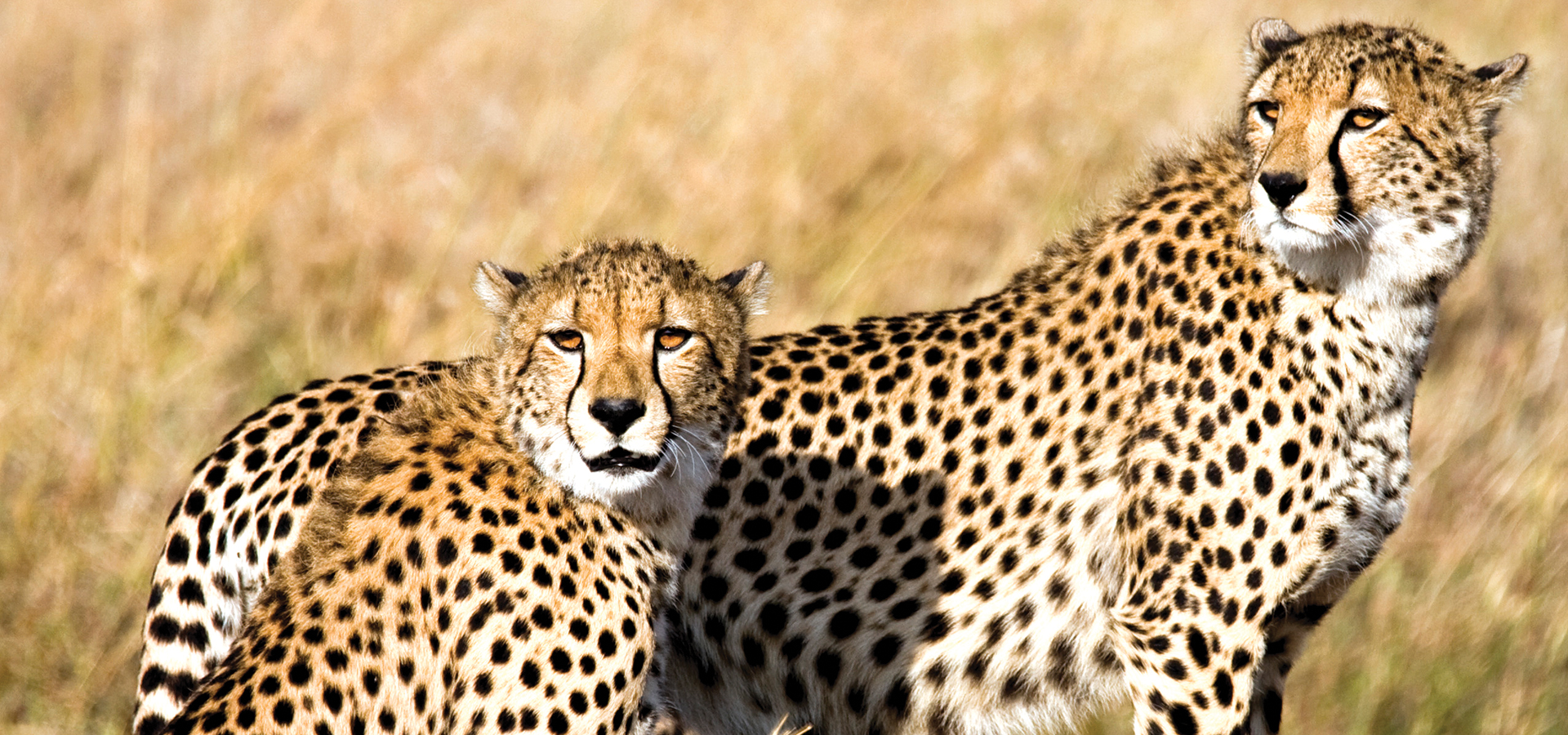
Above: Cheetahs on the hunt in the Maasai Mara, Kenya
•••
THE VIEW FROM HERE
“A safari is a transformative experience,” Alan says, adding that each itinerary is custom-designed for clients, whether they are traveling solo or in a large group. The excursions last anywhere from eight to 30 days.
Infinite Safari Adventures also provides different levels of comfort, from luxurious to a more natural experience. “I tell people not to worry. There will be beds, hot showers, and toilets that flush,” says Alan. Costs can run about $800 to $1,000 per person per day. Some experiences are more expensive than others. “For instance, the cost for a permit to see the gorillas in Rwanda is $1,500 per person. But I build all of this into the price for the safari.” Clients are only responsible for getting themselves to and from Africa.
Alan realizes that he is lucky his safari company has worked out. He gave up a lot to follow his dream. The icing on the cake? The personal fulfillment. “As a second career and a new phase in my life, I am very passionate about Africa and what I do,” Alan says. “I love sharing this experience with others and allowing people to see a different way of viewing the world.”
For more, go to infinitesafariadventures.com.
Join the Valley Community






